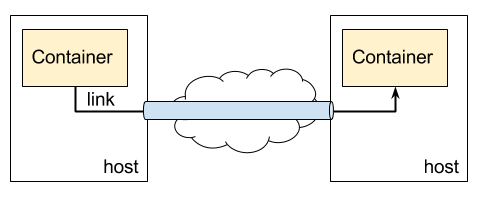https://github.com/jkawamoto/ambassadors
Yet another Ambassador pattern over SSH
https://github.com/jkawamoto/ambassadors
ambassador connection docker secure security
Last synced: 6 months ago
JSON representation
Yet another Ambassador pattern over SSH
- Host: GitHub
- URL: https://github.com/jkawamoto/ambassadors
- Owner: jkawamoto
- License: mit
- Created: 2015-01-15T15:26:31.000Z (almost 11 years ago)
- Default Branch: master
- Last Pushed: 2017-10-28T18:56:07.000Z (almost 8 years ago)
- Last Synced: 2025-04-15T12:19:19.467Z (6 months ago)
- Topics: ambassador, connection, docker, secure, security
- Language: Shell
- Homepage: https://jkawamoto.github.io/ambassadors/
- Size: 223 KB
- Stars: 4
- Watchers: 2
- Forks: 2
- Open Issues: 0
-
Metadata Files:
- Readme: README.md
- License: LICENSE
Awesome Lists containing this project
README
AmbassadorS
============
[](LICENSE)
[](https://hub.docker.com/r/jkawamoto/ambassadors/)
[](http://microbadger.com/images/jkawamoto/ambassadors)
[](https://github.com/jkawamoto/ambassadors/releases/tag/v1.0.1)
[](http://qiita.com/jkawamoto/items/4b87d0f61ab3fbbd2897)

Yet another [Ambassador pattern](https://docs.docker.com/engine/admin/ambassador_pattern_linking/) over SSH.
Install
--------
You can pull a built container.
```sh
$ docker pull jkawamoto/ambassadors
```
If you are running on Raspberry Pi, you can pull it instead.
```sh
$ docker pull jkawamoto/rpi-ambassadors
```
Usage
-------
~~~
$ docker run -dt jkawamoto/ambassadors (server|client|tunnel) [-v]
Options:
-v Verbose mode for debugging.
~~~
AmbassadorS has three modes; server, client, and tunnel.
Those modes are associated as follows.
~~~
(a container) ---> (AmbassadorS client) ---> (AmbassadorS tunnel)
== ssh ==> (AmbassadorS server) ---> (service containers)
~~~
You need one server-mode container on a host which has containers to be linked, i.e. *service containers*,
and one tunnel-mode container on each "client" host.
You also need client-mode containers for every linking container.
Example
--------
Suppose you have MySQL and MongoDB containers on host *A*, and a container on host *B* wants to link them,
you firstly need to run a server-mode container linking the MySQL and MongoDB containers on host *A*.
```sh
$ docker run -d --name ambassadors_server \
-v ~/.ssh/:/data/ -p 10022:22 \
--link mongo:mongo --link mysql:mysql \
jkawamoto/ambassadors server
```
The server-mode container requires `authorized_keys` in `/data/` and to expose port `22` for sshd.
In this example, `authorized_keys` of host *A* will be used from the server-mode container.
The server-mode container also needs to link service containers.
In this case, it links to containers named mongo and mysql.
On host *B*, you need to run a tunnel-mode container.
```sh
$ docker run -dt --name ambassadors_tunnel \
-v ~/.ssh:/root/.ssh -e PORT=10022 -e HOST= \
jkawamoto/ambassadors tunnel
```
The environment variable `HOST` is the address for host *A* and `PORT` is specified the port number of sshd.
The tunnel-mode container requires a private key of which the related public key `id_rsa` is included in the `authorized_keys` put on the server-mode container.
The private key needs to be put in `/root/.ssh`.
In this example, `id_rsa` of host *B* will be used from the tunnel-mode container.
You also need to run client-mode containers for MySQL and MongoDB.
```sh
$ docker run -d --name mysql_ambassadors \
--link ambassadors_tunnel:tunnel --expose 3306 -e PORT=3306 \
jkawamoto/ambassadors client
$ docker run -d --name mongo_ambassadors \
--link ambassadors_tunnel:tunnel --expose 27017 -e PORT=27017 \
jkawamoto/ambassadors client
```
Those client-mode containers must link the tunnel-mode container with name `tunnel` and expose as same port as service containers expose.
In this case, the client-mode container for MySQL exposes `3306` while the mysql container exposes `3306`.
Those client-mode containers also need to set environment variable `PORT` as the exposed port number.
Finally, you can use MySQL and MongoDB running on host *A* from host *B*.
```sh
$ docker run -d --link mysql_ambassadors:mysql --link mongo_ambassadors:mongo some-app
```
License
=======
This software is released under the MIT License, see [LICENSE](LICENSE).